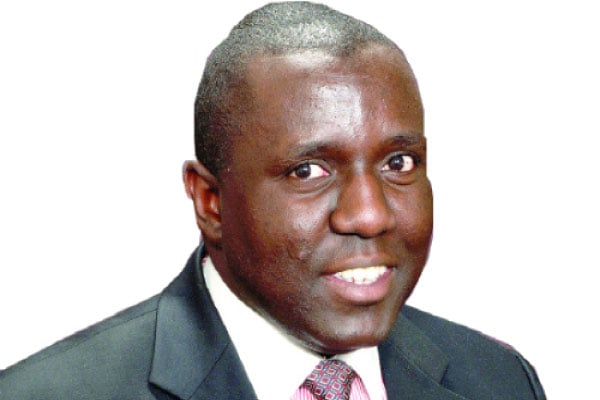Prime
How climate change, Pandora Papers have dominated press

Author: Mr Karoli Ssemogerere is an Attorney-at-Law and an Advocate.
What you need to know:
- The Pandora Papers are unique because they flag highly secretive transactions at the highest levels of government.
The modesty of life in the third world does not end. We are in the middle of the rainy season, and rain is both infrequent and insufficient. Rainfall supports most forms of agriculture in our country.
After steady rainfall in 2020, 2021 is likely to be of lower amounts of rainfall due to climate change. Various sectors are strained on account of low amounts of rainfall. Prices of foodstuffs have gone high again.
The pressure for moderation of fossil fuel consumption is likely to rise as crude and refined oils are trading at two year highs after a slump in economic activity caused by Covid-19. In the UK, supply bottlenecks have sparked pain at the pump as 25 percent of Britain’s 8,300 petrol stations are out of fuel.
Energy prices normally rise as the north cools down for winter. On the other hand, Kenya just fired the Energy secretary for failing to contain a steep rise in electricity costs from thermal producers. Also, the Kenyan Treasury is under pressure for using the petroleum levy to pay fuel importers to moderate pump prices which are also at record highs.
Climate change is now a big issue in the West. After a 16- year run, Germany is likely to end up in a traffic stop coalition, with the Greens in ascendance or coalition with the pro-business Free Democrats and Social Democrats.
The Greens have captured the younger population under 26 by a big majority convinced that the geriatric shift in population dominated by Christian Democratic Union (CDU) and Social Democratic Party (SPD) does not favour them. About 44 percent of voters under age 26 voted for the Greens and SPD. Germany is an older country, both CDU and SPD scored 50 percent in total votes, a record low in the September 26 election. It did not help that massive landslides shone an unfriendly spotlight on German sluggishness to embrace emissions free technology partly to protect its auto-industry. The younger Germans are also unhappy with delays to completely phase out coal.
The other front page news is the big burst of information by the International Consortium of Investigative Journalists the Pandora Papers. Strict libel laws prevent the publication of these stories in many countries, the stories of how the super-rich and connected have continued to take advantage of tax havens. Some new arrivals on the list, former British Prime Minister Tony Blair and his wife, are in the spotlight for buying a lucrative property in London taking advantage of a tax loophole to avoid paying stamp duty.
In Africa, the major news comes from Portuguese Africa. In Angola, Isabel dos Santos, the daughter of former president José Eduardo dos Santos and head of Sonangol oil company, has lost most of her fortune at the behest of anti-money laundering efforts especially in Europe. A day after she lost her job in 2017, the Chief Financial Officer of Sonangol wired $58 million to her partner in Dubai.
In Mozambique, a major scandal tied to loans acquired to develop a $2.7 billion fish industry have circled two presidents, a former finance minister and many other high ranking people. In 2018, former Finance Minister Manuel Chang was arrested in South Africa upon request of the United States over money laundering allegations.
Mozambique also launched a secondary request to repatriate him home where he would be immune to any external extradition. It has also been in a unique situation, battling ISIS rebels and invited RPF to assist in containing the mayhem.
The Pandora Papers are unique because they flag highly secretive transactions at the highest levels of government.
The Jordanian, Kenyatta family, Ukraine president, Cypriot leader are all mentioned in connection with asset acquisitions even though the sums seem quite ordinary. It was hair raising to mention that the Blairs have acquired £30m in property but this is a modest sum compared to say African or Nigerian fortunes. At the root of most political systems is a dominant economic theme, partly spoils, partly privilege and mostly patronage to acquire, maintain and extend political power.
Democratic governance tools like term limits moderate this factor but can’t eliminate it. Other tools like iron-clad pensions have a muted effect.
An American president retires on $400,000 a year hardly a princely sum compared to the millions they earn in speeches and books, making pensions a side play to the influence former leaders have within their political systems.
Mr Ssemogerere is an Attorney-At-Law and an Advocate. [email protected]




